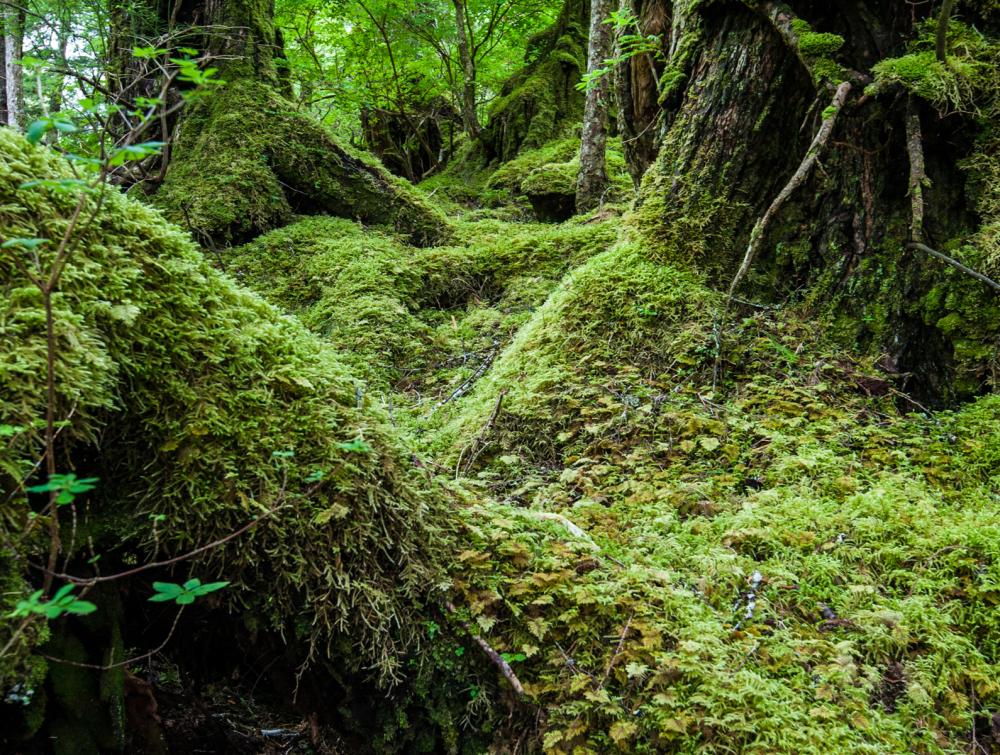Do you think a road belongs in this forest?

Tongass National Forest, Alaska
Nelson Guda
The state of Alaska has officially asked the Trump administration to exempt the Tongass National Forest from the Roadless Rule. This will open up millions of acres of old-growth forest to development in Alaska, and could also set a precedent of forest-by-forest or state-by-state exemptions that effectively dismantles the underlying rule.
If we don't speak up in the coming days, the Trump administration may force roads through some of America's most pristine national forests.
Americans have until Oct. 15 to submit comments opposing this effort and standing up for Our Wild Forests.
Just as the Trump administration’s rollback of protections at Bears Ears and Grand Staircase-Escalante weakened the monument standard set out under the Antiquities Act, making exceptions to the Roadless Rule is a slippery slope.
“Exempting the Tongass from the Roadless Rule would put protections for all roadless areas nationwide into question,” said Megan Birzell, national forest defense campaign manager at The Wilderness Society, in a statement. “[Alaska] Senator [Lisa] Murkowski has already attempted to undermine this important conservation rule through legislative means. These attempts underscore the unprecedented attack on public lands we're seeing at all levels of government.”
The requested action "would put protections for all roadless areas nationwide into question,” according to Megan Birzell, national forest defense campaign manager at The Wilderness Society.
What the Roadless Rule does
Unique in the stodgy, proviso-tangled world of federal regulations, the “Roadless Rule” does pretty much what the name suggests, and you could safely summarize its merits even if you’d never heard of the thing until this blog post.
The measure—full name: the 2001 Roadless Area Conservation Rule—established that some parts of the National Forest System should not allow road construction, timber harvesting and other development. The patches of forest where the Roadless Rule is in effect are called "inventoried roadless areas." These make up nearly 30 percent of national forest land, and you have very likely used them to hike, camp or otherwise enjoy nature. The rest, as they say, is commentary.
But now, Donald Trump is set to take a swing at this simple, crucial rule.
Roadless Rule long under attack; Trump era brings new risks
The simple, common-sense rule involved one of the most extensive public participation undertakings in the history of federal rulemaking, and it enjoyed support all over the political spectrum. But that hasn’t stopped logging and mining interests from attacking the Roadless Rule practically since the moment it was first implemented by the U.S. Forest Service. It endured the George W. Bush administration and nearly two decades’ worth of dueling legal challenges, but now, anti-conservation forces have the wind at their backs like never before, with oil, gas, coal and timber companies enjoying unusual influence in Washington DC.
While special interests angle to introduce more development to wild and untrammeled stretches of forest, friends of conservation are gearing up to preserve the laws on the books. Days after Alaska petitioned the Trump administration, 220 scientists signed on to a letter to Congress opposing two riders to the 2018 Senate Interior Appropriations bill that would do materially the same thing the state requested, along with barring Alaska’s other national forest, the Chugach, from the Roadless Rule.
Stay tuned for more news on the Roadless Rule and information on how we can protect our roadless national forest lands.
